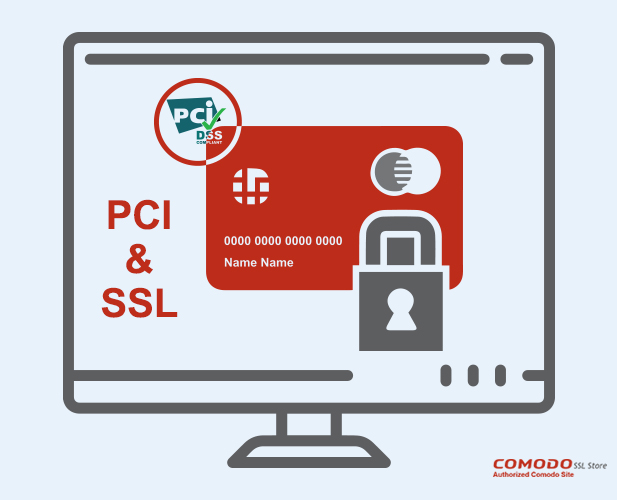SSL Certificates and PCI Compliance
Understand why SSL certificate is an indispensable part of PCI standards
The payment card industry (PCI) has established specific rules and requirements to accept, process, store and transmit payment card information. These requirements are known as Payment Card Industry Data Security Standards (PCI DSS). PCI DSS first came into the picture in 2006 with the intention of managing and securing the online transaction process.
These requirements are enacted by an independent body comprised of major payment card brands. This body is called the Payment Card Industry Security Standards Council (PCI SSC). Payment card companies like Visa, MasterCard, American Express, Discover and JCB are all a part of this body.
There is a lot of confusion when it comes to SSL certificates and PCI compliance. For merchants accepting online payments, heeding the 12 PCI DSS essentialities is a must. Installing an SSL certificate is one of those standards. Let’s looks at why SSL certificates are important part of PCI Compliance.

PCI Requirements for SSL certificates
Enterprises must fulfill the requirements set by the PCI SSC for SSL certificate installation. This is to ensure that merchants are using the latest technology to facilitate secure communication.
- The latest PCI DSS 3.2 requires migration from early SSL/TLS version 1.0 to a secure version v1.1 or higher.
- Strong Private Key
- For RSA: 2048-bit+
- For EC: 256-bit+
- Strong Cipher Suites
- Cipher must be 128-bit+
- DH Parameter: 2048-bit+
- Export suites are not allowed
- Anonymous key exchange suites are not allowed
- The merchants cannot ask for cardholder data on non-HTTPS page.
- Install the trusted SSL/TLS keys/certificates only.
- The merchants must make sure that the cardholder data is secured securely.
Why SSL is important for PCI compliance?
Man-in-the-middle (MITM) attacks and phishing are two of the greatest threats as far as online payments are concerned. Hackers and fraudsters are always looking to get their hands-on credit card details. This is done through MITM attacks.
When the customer sends his/her credit/debit card or banking details, there always persists a risk of sensitive data falling into the hands of ill-intended people. This is when the data is in transit from the customer’s web browser to the merchant’s web server. Cyber criminals can easily intercept and tamper with data as if it’s not protected using SSL certificates.
SSL certificates protect delicate data from perpetrators. This protection is enforced using end-to-end encryption. It means the information entered by the customer is scrambled into an unreadable format. And this unreadable data can only be decrypted by the merchant’s web server. Therefore, hackers cannot even see the information, let alone tamper with it.
Generally, SSL certificates come with a robust 256-bit encryption key, which is impossible to crack for hackers. So, there is no chance of sensitive details getting leaked or tinkered with. Considering the heavily-armed protection of hyper-sensitive provided by SSL certificates, it is of the utmost importance. So, it wouldn’t be wrong to call it the backbone of PCI DSS.


 (13 votes, average: 4.38 out of 5)
(13 votes, average: 4.38 out of 5)